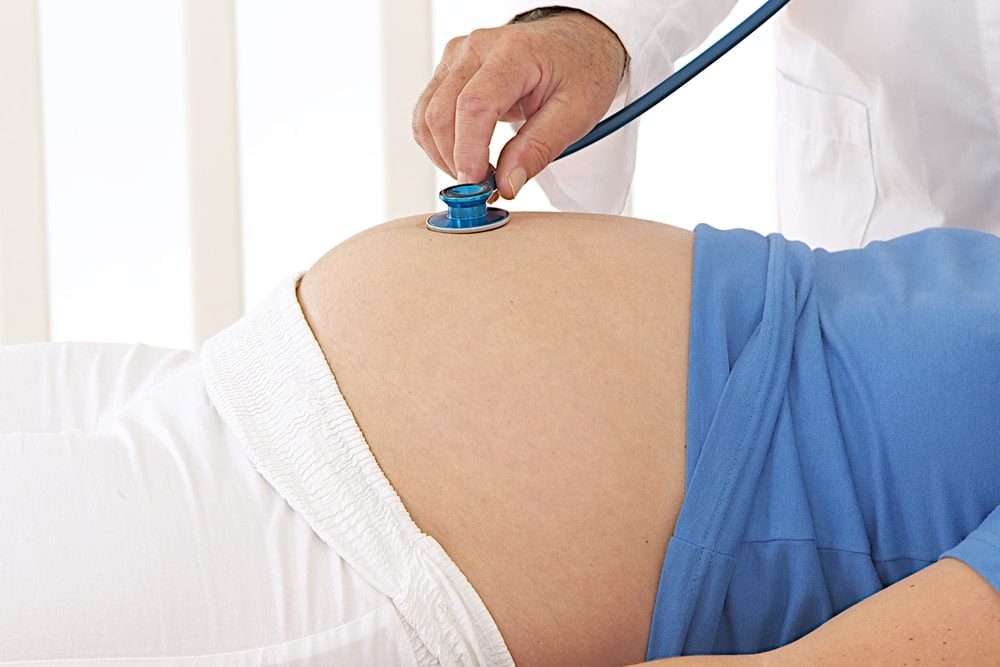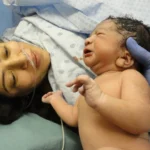What Is Fetal Growth Restriction (FGR) & What Are The Causes?
Fetal Growth Restriction (FGR) is a condition in which the fetus does not grow as expected during pregnancy. It is also known as Foetal Intrauterine Growth Restriction (IUGR). FGR can result in serious health complications for both the mother and baby, and can even be fatal. It is important to understand the causes of FGR so that it can be identified early and managed appropriately.
There are many potential causes of FGR, including maternal malnutrition, smoking, alcohol consumption or drug use during pregnancy. Awareness of these risk factors is essential in order to identify and manage the condition appropriately. Early diagnosis and treatment are key to ensuring the best possible outcome for both mother and baby. It is important for medical professionals to be aware of the signs and symptoms of FGR so that they can diagnose it quickly and provide appropriate care. This includes monitoring fetal growth patterns throughout pregnancy as well as providing nutritional support to mothers with risk factors such as malnutrition or substance abuse during pregnancy.
What is IUGR?
- Intrauterine growth restriction is defined as a decrease in foetal growth from the established norm. This might include a decrease in head circumference, weight or other measures. The problem is usually detected by measuring body length and head circumference of the fetus during the second trimester of pregnancy. Intrauterine growth restriction typically occurs when an individual’s weight gain falls below what is considered normal for their height. If this happens every month, it can be seen as “normal” even though it may be outside of healthy range for that particular individual.The most common cause of IUGR is maternal diabetes and an increased risk of fetal growth restriction exists with maternal diabetes, preeclampsia, renal disease and other chronic diseases such as hepatitis. Another cause is placental insufficiency.
Understanding How Fetal Growth Restriction can Lead to Serious Complications-
It is important to diagnose FGR early in pregnancy as it can lead to serious complications. The size of the fetus can be monitored during antenatal care and if there is any concern about FGR, further tests should be done to diagnose it. FGR can lead to premature birth and low birth weight, which can increase the risk of health problems for both mother and baby. It is therefore important for pregnant women to seek regular antenatal care so that any issues with fetal growth can be detected early on and managed appropriately.
Hemorrhage during pregnancy is a cause of fetal growth restriction, as it can lead to severe anemia and associated complications. Asphyxia also can be a cause of FGR if it leads to oxygen deprivation. Other causes include maternal illness, low birth weight and genetic diseases.A diagnosis for FGR can be made through a detailed history gathering process and physical examination by healthcare professionals who are experienced in diagnosing this condition. If the conditions causing FGR are not known or suspected, then further tests may be needed. It is important to remember that antenatal care professionals are experienced in assessing the FGR of pregnant women and will be able to identify any conditions affecting fetal growth.
FGR can also be managed by making sure that the pregnant woman has access to regular antenatal care, as they will be able to monitor the fetus and provide any intervention needed. A key focus of antenatal care is on preventing complications related to FGR.
What Can Parents Do When They Suspect Their Baby Has Fetal Growth Restriction?
It is important for parents to be aware of the signs and symptoms of FGR and take necessary action if they suspect their baby has FGR. The most common way to diagnose FGR is through an antenatal ultrasound scan. This scan will measure the size of the fetus and compare it to a fetus size chart during pregnancy. If there are any discrepancies in size, then this could indicate that there may be an issue with FGR.
Parents should also keep track of their baby’s movements during pregnancy as this can provide valuable information about their overall health and development. If parents have any concerns about their baby’s growth or development, they should speak to their doctor or midwife immediately so that appropriate action can be taken.
How To Monitor A Baby With Foetal Growth Restriction and Reduce Its Complications?
Fetal growth restriction (FGR) is a condition in which the fetus does not grow to its expected size. It can lead to serious complications for both mother and baby if left untreated. In order to reduce the risk of complications, it is important to monitor fetal growth rate closely. The best way to do this is by using a fetal growth chart, which allows healthcare professionals to track the baby’s development over time. This will help them identify any potential problems and take action as soon as possible in order to reduce the risk of complications. Additionally, regular antenatal scans can also be used to monitor fetal growth rate and detect any abnormalities early on so that appropriate treatment can be given. A fetal growth chart is only a useful tool if it is used correctly as it will not give any information about the health of the baby until after delivery.
Diagnosis and Treatment Options for Foetal Growth Restriction
Fetal Growth Restriction (FGR) is a condition in which the fetus does not grow as expected during pregnancy. It is diagnosed by ultrasound scans and other fetal monitoring tests. The treatment options for FGR depend on the severity of the condition and can range from lifestyle changes to medications or even surgery
Early diagnosis of FGR is essential for successful treatment, as it allows medical professionals to monitor the growth of the fetus more closely and intervene quickly if needed. Ultrasound scans are usually used to detect FGR, but other tests such as Doppler ultrasound, amniocentesis or biophysical profile may also be used.
Once FGR is diagnosed, doctors will decide on the most appropriate treatment option depending on individual circumstances. Depending on the severity of FGR, treatments may include lifestyle changes such as reducing stress levels or changing diet; medications such as corticosteroids; or even surgery in some cases.
Preventative Measures Parents Can Take For A Healthy Pregnancy
Pregnancy is a special time in a woman’s life. It is important for parents to take the necessary steps to ensure that the pregnancy is healthy and safe. Taking preventative measures such as adequate prenatal care, eating healthy, and avoiding cigarette smoking can help ensure that the baby is born healthy and strong. Adequate prenatal care includes regular check-ups with an obstetrician or midwife, taking vitamins and minerals, and monitoring health for any signs of complications. Eating healthy during pregnancy will provide essential nutrients for both mother and baby. A balanced diet should include fruits, vegetables, proteins, dairy products, whole grains, and essential fats. Avoiding cigarette smoking is also important as it can lead to serious health problems for both mother and baby. By following these preventative measures parents can be sure that their pregnancy will be safe and successful.
















